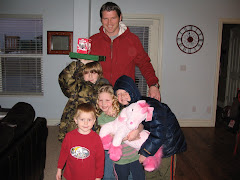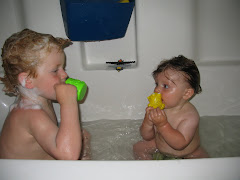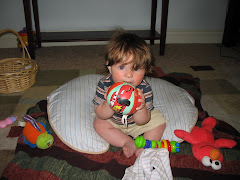Good parenting is flexible and adjusts to a child’s stage of development. As parents, it’s important that we allow our children to acquire skills at their own pace. The key to supporting their development is readiness. Children grow and mature in their own time, and it’s essential that we try to adapt our parenting to meet the unique needs of each child. We need to stay in tune with our children's growth, as their abilities, concerns, and needs will constantly change throughout their lives.
A child’s development is influenced by a combination of biology, temperament, parental involvement, and the environment in which they are raised. There are several crucial points to keep in mind when learning how to adapt parenting strategies to fit each child:
-
When a child transitions from one developmental stage to another, changes occur both inside and out. Their brains, emotions, and perspectives shift along with physical growth, so the way they relate to the world also changes.
-
Stages of psychological development are reasonably predictable. As parents become more familiar with what typically happens during each stage, it becomes easier to enjoy the journey and appreciate the time we have with our children, rather than becoming overwhelmed or confused by their behaviors.
-
Neither parents nor children can control the pace of development. Whether it is physical or psychological growth, the process takes time. This means we need to be patient and avoid comparing our child’s progress to that of other children. Each child is on a personal path.
-
The same developmental forces that help children grow are often the source of parenting challenges. By recognizing this, we can better understand our child’s behavior and respond with greater empathy and patience.
Patience is absolutely essential during developmental transitions. Children may seem very mature in one area, such as language, but still struggle emotionally or socially. This uneven growth is perfectly normal. My instructor in my Parenting Skills class taught that there are four primary age stages of development: birth to 2 years, 3 to 6 years, 7 to 11 years, and 12 to 17 years. Within each stage, there are three main domains of development to be aware of: physical, cognitive, and socio-emotional.
Parents should take the time to learn about each of these domains to know what to expect during different stages. Having realistic expectations can help us respond in more supportive and helpful ways. We must also remember that even within these guidelines, each child will differ in how they progress. Some children walk early, others talk late, and many don’t follow the same timeline as their siblings. That’s okay.
As our children grow, our role as parents must evolve. Early on, we are more in control, guiding nearly every part of a child’s life. But over time, we need to shift from controlling our children to helping them learn how to control themselves. Eventually, we stop shaping who we think they should be and instead begin to admire the unique person they are becoming. We move from directing to guiding, and finally, to supporting.
Sometimes, children struggle not because something is wrong with them, but because their parents have unrealistic expectations. When parents don't understand what is developmentally appropriate, they may place unfair demands on their children. This can lead to children feeling like failures simply because they can’t meet impossible standards. Over time, these children may begin to see themselves as broken, disappointing, or unworthy. They may develop feelings of inferiority, anxiety, and insecurity, and struggle to relate to others with empathy.
An effective parent works to get inside the child’s mind—understanding how they think, feel, and perceive the world around them. Behavior always has a reason behind it. Rather than just reacting, we should take time to ask why our children are acting a certain way. What emotions are they trying to express?
We also need to consider each child’s temperament. Temperament is the natural disposition we are born with—it affects how we respond to the world. Some kids are easygoing, while others are sensitive or highly active. Temperament is not under a child’s control. For example, it’s not until around age 7 or 8 that a very energetic child can truly manage sitting still for long periods or talk themselves out of being scared. Understanding this helps us be more compassionate and supportive.
While we can apply general principles of parenting, it’s critical to tailor our approach to each individual child, moment by moment. One powerful way to do this is to spend one-on-one time with each child. This personal attention allows us to better understand them, build trust, and help them feel supported and seen.
Ultimately, when children feel understood, they thrive. They develop confidence, build strong relationships with their parents, and grow up feeling loved and capable. Understanding what behaviors are appropriate for each stage allows us to parent more effectively and with greater empathy.
By staying informed, staying flexible, and staying patient, we can guide our children through every phase of their development with love and wisdom.



















No comments:
Post a Comment